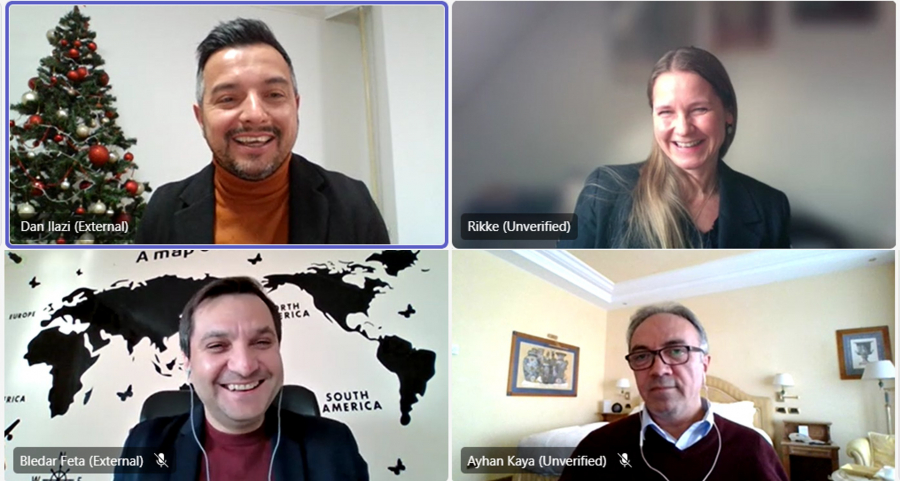29/11/2024

On November 27, 2024, the SMIDGE project hosted its third webinar, focusing on the timely and pressing topic, “Gaming and Digital Spaces as Radicalization Arenas.” The session brought together three distinguished experts who explored the complexities of radicalization within gaming communities and digital spaces. The webinar highlighted how extremist narratives exploit these environments and discussed strategies to counter their influence.
Prof. Ayhan Kaya: The Politics of Grievance and Nostalgia
The webinar opened with Prof. Ayhan Kaya, Jean Monnet Chair of European Politics of Interculturalism at Istanbul Bilgi University and a member of the Science Academy in Turkey. Drawing from his work with the Pledge Horizon project, Prof. Kaya examined radicalism as a “politics of grievance” fueled by socio-economic deprivation, political discontent, and nostalgic longing for an idealized past.
Kaya highlighted how right-wing groups capitalize on this nostalgia, crafting narratives that resonate with youth who feel displaced by rapid societal changes. He also underscored the role of “co-radicalization,” exacerbated by a lack of communication across social and cultural divides. Insufficient investment in youth-oriented spaces and dialogue platforms intensifies these divisions. “Bridging these gaps through youth-focused initiatives is critical to countering radicalism,” Kaya stressed.
Dr. Rikke Alberg Peters: Unpacking Online Vulnerabilities
Dr. Rikke Alberg Peters, Associate Professor at University College Lillebaelt in Denmark, delved into the psychological aspects of radicalization, using the Danish “Holbæk case” as an example. She explored how offline vulnerabilities translate into susceptibility to online radicalization, which is often accelerated by the digital environment.
Dr. Peters identified key risk factors, including anonymity, algorithms, “rabbit holes” that trap users in extremist content, and the appeal of edgy humor. These factors create a potent mix, making youth particularly vulnerable. She emphasized the need for proactive engagement by adults to address grievances, foster dialogue, and create alternative spaces for social interaction. Education on hate speech and online polarization is equally crucial.
Bledar Feta: Gaming Communities and Policy Responses
Bledar Feta, an international relations specialist with ELIAMEP’s South-East Europe Program and team leader of the Horizon Europe-funded GEMS project, presented a policy-oriented perspective on combating online radicalization in gaming spaces. Feta outlined two critical phases of radicalization within gaming communities: Communication & Targeting – Vulnerable gamers are identified through multiplayer platforms and Grooming & Mobilization – The process transitions to encrypted channels outside gaming spaces.
Challenges such as anonymity and the rapid evolution of gaming technology make it difficult for policy to keep pace. Feta advocated for a “safety by design” approach and stressed the importance of collaboration among gamers, parents, educators, policymakers, and stakeholders. “Engaging these groups is essential to implementing preventive measures and fostering safer gaming environments,” he said.
Key Takeaways and the Way Forward
The webinar underscored the importance of a multi-faceted approach to counter radicalization in gaming and digital spaces. From addressing socio-political grievances to enhancing digital literacy and implementing targeted policies, the speakers highlighted actionable approaches to mitigate the risks.
By bringing together experts from diverse fields, the SMIDGE webinar provided a platform for critical dialogue and collaboration, reinforcing the need for collective efforts to tackle the complex phenomenon of online radicalization.